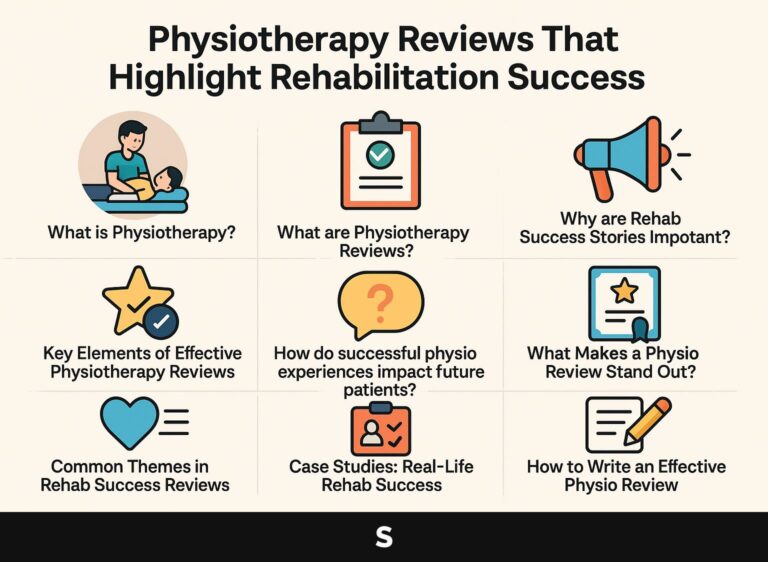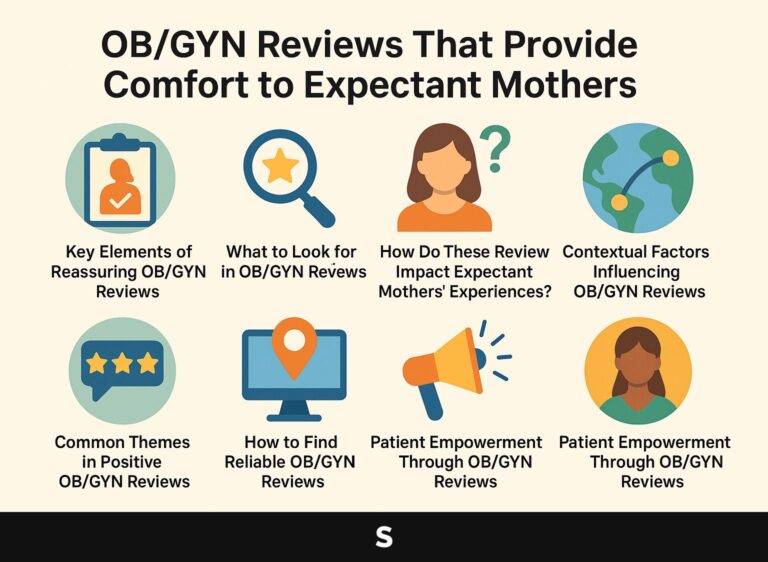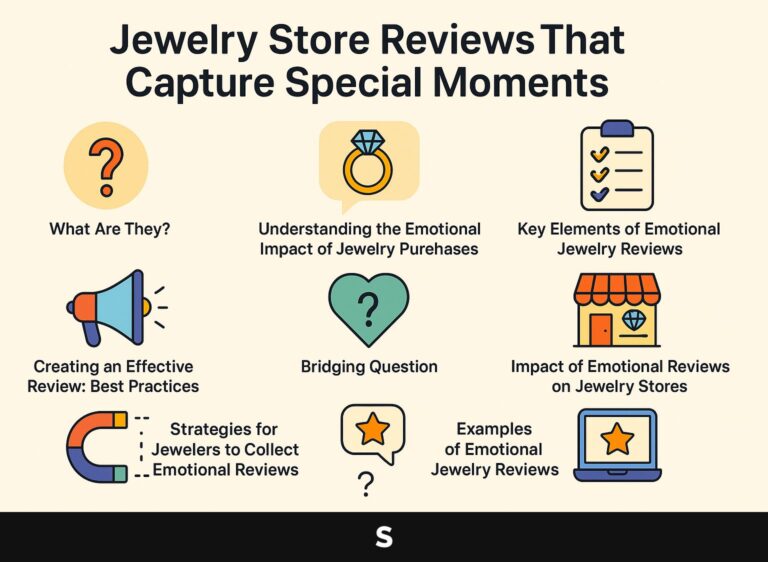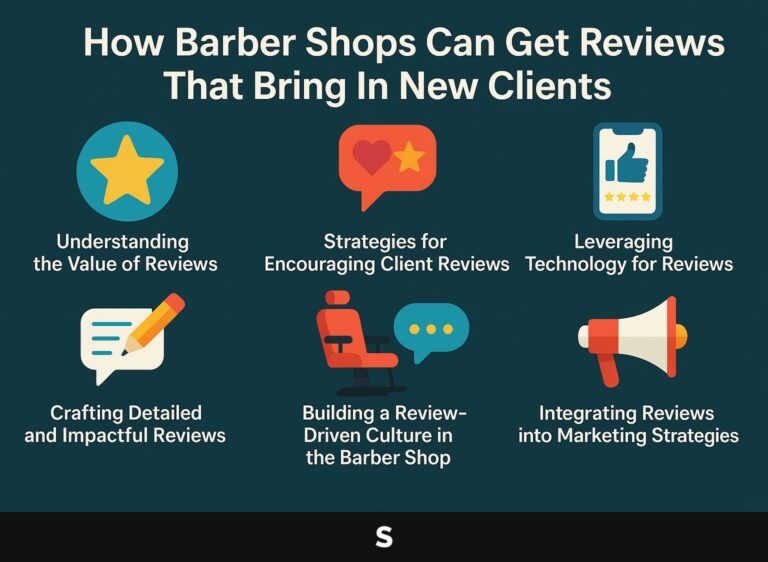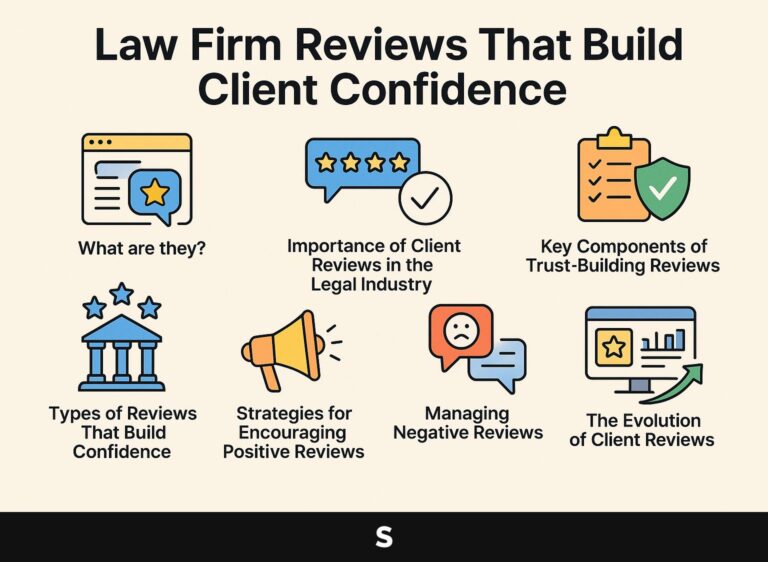ENT Clinic Reviews That Address Specialty Care Quality
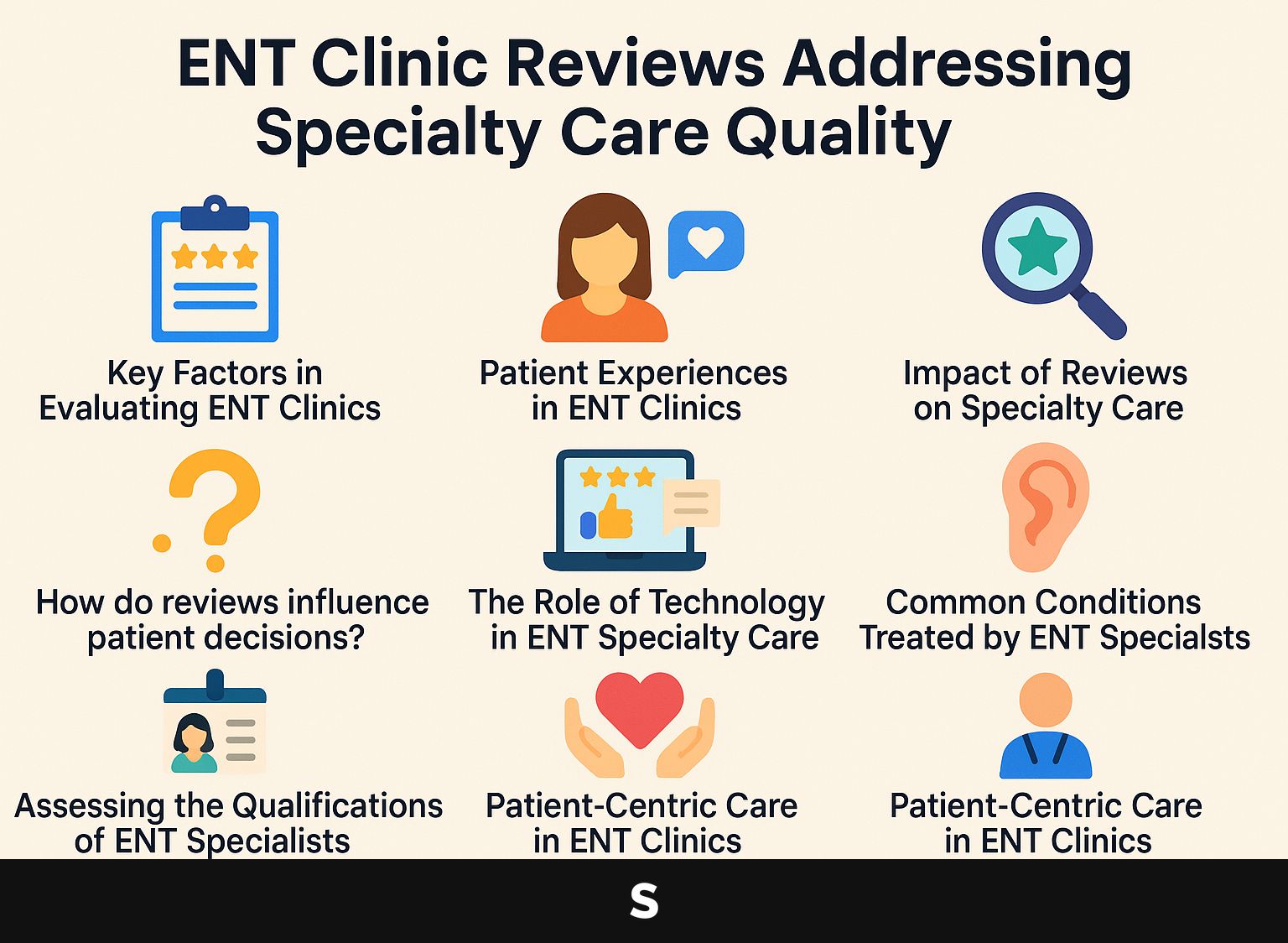
If you need specialized care in North Texas, it is important to know the quality of ENT services. At Texas ENT Center, clinics in Northlake and Keller prioritize patient experiences, whether you’re looking for pediatric care or solutions like hearing aids. Our review of ENT clinics emphasizes both their skill and the patient results that are most important. Learn how this information can help you make decisions and get the best care for your specific needs.
Key Takeaways:
- Quality in ENT specialty care is defined by thorough examinations, clear communication, and effective treatment options.
- Patient reviews are important for evaluating a clinic’s reputation and affecting patient choices.
- Advanced technology and patient-centered care are key factors in positive patient experiences and successful outcomes in ENT clinics.
- ENT Clinic Reviews That Address Specialty Care Quality
- Key Factors in Evaluating ENT Clinics
- Patient Experiences in ENT Clinics
- How do reviews influence patient decisions?
- How Reviews Affect Specialty Care
- The Role of Technology in ENT Specialty Care Reviews
- Common Conditions Treated by ENT Specialists
- Assessing the Qualifications of ENT Specialists
- Patient-Centric Care in ENT Clinics
- Community Impact and Outreach of ENT Clinics
- Frequently Asked Questions
- 1. What is an ENT clinic review and how does it address specialty care quality?
- 2. Why are ENT clinic reviews important for addressing specialty care quality?
- 3. How can I find ENT clinic reviews that specifically address specialty care quality?
- 4. What should I look for in ENT clinic reviews that address specialty care quality?
- 5. How can ENT clinic reviews that address specialty care quality help me make a decision about my healthcare?
- 6. Can ENT clinic reviews that address specialty care quality help a clinic improve its services?
ENT Clinic Reviews That Address Specialty Care Quality
To assess the quality of care at ENT clinics, look at patient feedback, the technology they use, and how successful treatments are. This highlights the skills of professionals like Stephen White and his team.
What constitutes quality in ENT specialty care?
Quality in ENT specialty care includes a thorough review of patient results, available technology, and the entire experience provided by ENT doctors.
To improve quality care, ENT specialists should regularly check important measures, such as patient satisfaction surveys and how often treatments work.
Using electronic health record (EHR) systems such as Epic or Cerner can simplify collecting information on patient results. Using telemedicine tools like Doxy.me helps with effective patient follow-ups, improving communication and maintaining ongoing care.
Implementing regular staff training on the latest technologies and treatment protocols also contributes to improved service quality and better patient experiences.
Key Factors in Evaluating ENT Clinics
To judge the quality of ENT clinics, you should consider the services they provide, patient reviews, and the technology used in treatments.
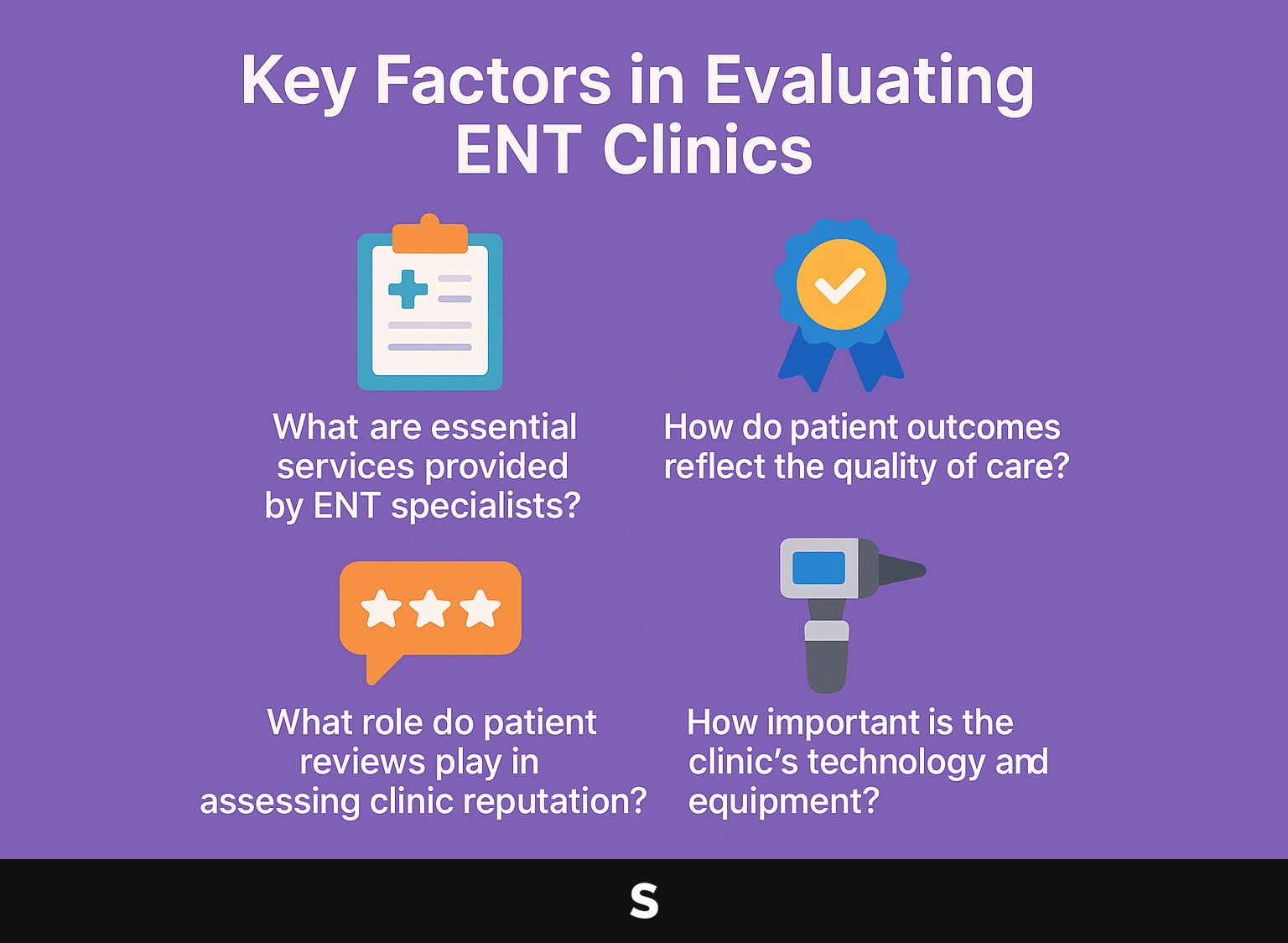
1. What are the essential services provided by ENT specialists?
ENT doctors play a key role in identifying and managing long-lasting sinus infections, allergies, and throat problems, which are essential for thorough patient care.
Specific services offered in ENT clinics encompass audiology assessments to evaluate hearing loss and its impact on communication. Allergy testing helps identify triggers, allowing for effective management strategies like immunotherapy.
Surgical procedures, like septoplasty to fix nasal blockages or tonsillectomy for frequent throat infections, are important for lasting symptom relief.
Each treatment is personalized to meet the patient’s individual needs, making life better and improving health outcomes.
2. How do patient outcomes reflect the quality of care?
Patient results show the quality of care in ENT clinics, giving information about how well treatments work and how happy patients are. To assess these outcomes effectively, clinics should focus on metrics such as recovery rates and patient feedback.
For example, tracking the percentage of patients who experience significant improvement in hearing after treatments like cochlear implants can provide a clear measure of effectiveness. Tools like patient satisfaction surveys and follow-up assessments can show information about the overall experience.
Establishing benchmarks based on industry standards helps clinics gauge their performance against others, promoting continuous improvement in care delivery.
3. What role do patient reviews play in assessing clinic reputation?
Patient reviews significantly impact the reputation of ENT clinics. They give potential patients information about the quality of care and kindness of the doctors.
Analyzing reviews effectively can reveal strengths and weaknesses in a clinic’s service. Look for consistent feedback-if multiple patients mention long wait times, this is a recurring issue that should be addressed.
On the other hand, frequent praise for a specific doctor can highlight their effectiveness. Use tools like Google Alerts to track new patient reviews, and engage with them by thanking reviewers or addressing concerns. This builds patient trust and shows dedication to providing good care.
4. How important is the clinic’s technology and equipment?
The technology and tools used in ENT clinics play an important role in improving the care provided to patients. This includes progress in hearing devices and diagnostic tools like CT scans.
Minimally invasive surgical tools, like endoscopes and laser systems, provide better visibility and accuracy, which helps shorten recovery times and lowers the risk of complications.
Diagnostic imaging, like 3D CT scans, helps doctors better understand complicated health issues, allowing for personalized treatment plans.
For instance, the use of otoendoscopes during procedures can improve outcomes by allowing doctors to visualize the ear canal and tympanic membrane in real time. Using these technologies increases patient safety and makes surgeries more successful.
Patient Experiences in ENT Clinics
Experiences of patients in ENT clinics are important for knowing how care is given and seen.
Detailed check-ups and clear communication are important parts. This approach aligns with the principles outlined in our analysis of getting Google reviews for your ENT clinic.
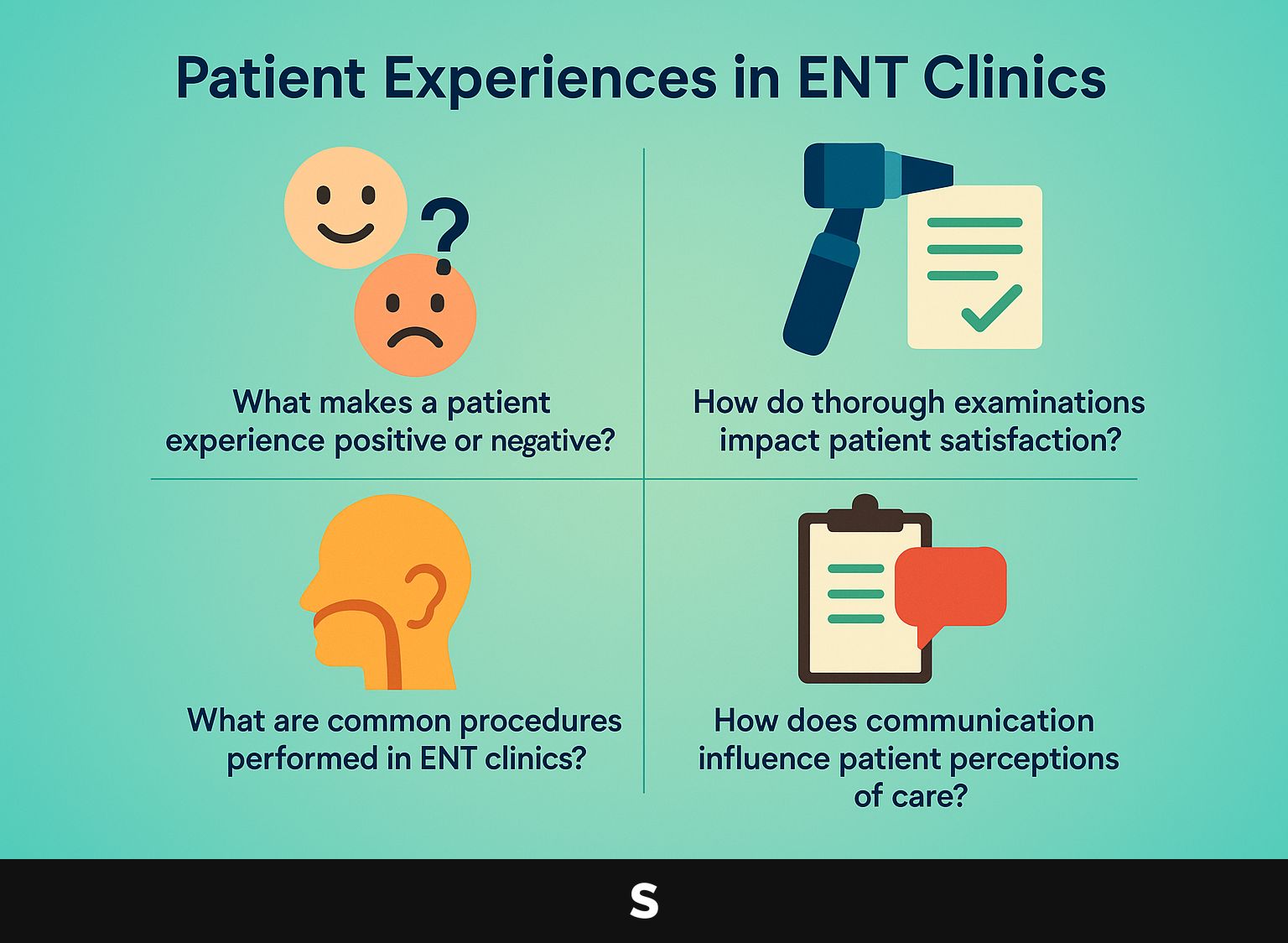
1. What makes a patient experience positive or negative?
A positive patient experience is often characterized by effective communication, thorough examinations, and a supportive environment, while negative experiences frequently arise from poor service or lack of clarity.
To improve how satisfied patients are, clinics should focus on these practical steps:
- Make booking appointments easier by using user-friendly platforms like Zocdoc or SimplePractice, which simplify the process and shorten wait times.
- Use follow-up calls or surveys with tools like SurveyMonkey to get feedback on the quality of care.
- Regular staff training on empathy and patient engagement can also create a more welcoming atmosphere.
- A patient portal lets people easily view their health records and get updates, greatly improving their experience.
2. How do thorough examinations impact patient satisfaction?
Careful examinations by ENT doctors are important for accurate diagnoses and increase patient satisfaction by addressing all concerns.
A complete checkup often includes hearing tests to measure hearing ability, along with endoscopy to look at the nasal passages and throat structures.
For instance, using a Tympanogram can help determine middle ear function, shaping the treatment plan for conditions like otitis media. Tests like the Vestibular Evoked Myogenic Potentials (VEMP) give information about problems with dizziness or balance.
By employing a variety of tests, specialists can tailor treatments more effectively, leading to improved outcomes and patient confidence.
3. What are common procedures performed in ENT clinics?
Common procedures performed in ENT clinics include the placement of hearing aids, endoscopic sinus surgery, and allergy testing, catering to a wide range of patient needs.
Each of these procedures addresses specific issues. Hearing aids help those with hearing loss regain quality of life, while endoscopic sinus surgery is effective for chronic sinusitis sufferers, often leading to significant relief.
Allergy testing using skin or blood tests finds causes, helping create treatment plans just for you. Patients can expect a thorough explanation of each process, from preparation to recovery, ensuring they are comfortable and informed.
Devices such as audiometers for hearing tests and endoscopes for surgical viewing are essential to the success of these procedures.
4. How does communication influence patient perceptions of care?
Good communication between ENT doctors and patients greatly impacts how patients see their care and can improve their satisfaction and confidence in the treatment process.
To improve communication, ENT specialists should emphasize active listening, ensuring patients feel heard and respected. You can do this by repeating what patients say to make sure you get it.
Clearly explaining treatment choices, including their pros and cons, encourages openness. Use images, like diagrams or models, to make hard ideas easier to understand.
Encourage questions-this engages patients and helps deal with any concerns they may have, building their trust in the treatment plan.
How do reviews influence patient decisions?
Reviews significantly influence patient decisions when selecting an ENT clinic, often serving as a deciding factor based on perceived quality and patient experiences.
Star ratings serve as a quick visual cue, allowing patients to gauge overall satisfaction at a glance. Detailed testimonials provide richer context. For instance, a patient may be swayed by comments highlighting a clinic’s exceptional bedside manner or effective treatment outcomes.
Websites like Google Reviews and Healthgrades are important because they collect both scores and written reviews. Getting happy patients to post reviews can greatly improve a clinic’s online reputation, so clinics need to focus on managing their reputation actively.
How Reviews Affect Specialty Care
Reviews have a strong effect on specialty care. They can show both the good and the bad in ENT clinics, which affects how much patients trust them.
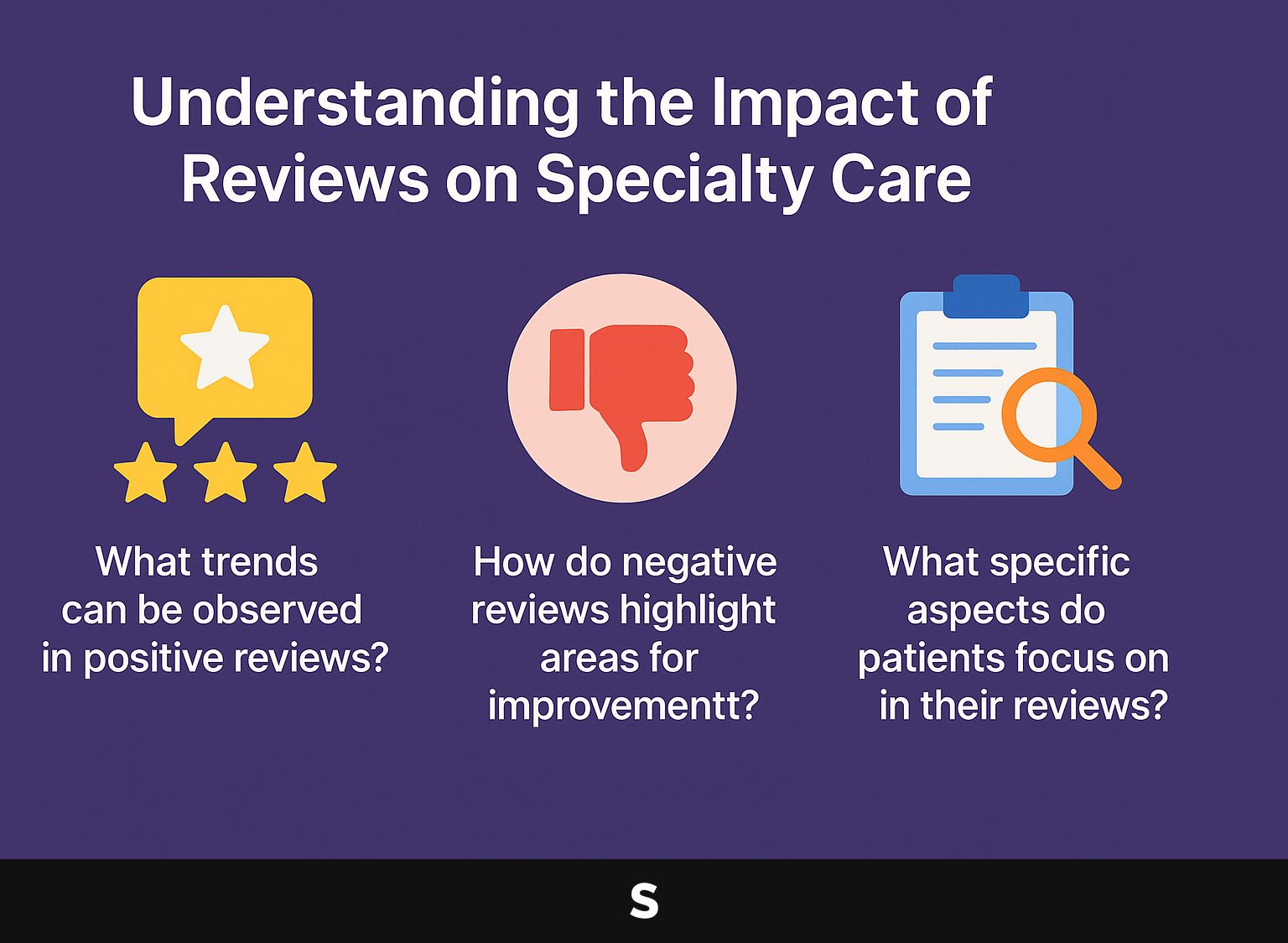
1. What trends can be observed in positive reviews?
Positive reviews often trend towards themes of compassionate treatment, effective procedures, and thorough communication, showcasing the aspects of care that patients value most.
To improve services, clinics can benefit from these trends by using particular methods.
- Teaching employees how to communicate with patients promotes a caring environment.
- Adopting innovative technology like telehealth can improve accessibility, expanding care options for patients.
- Gathering patient feedback through surveys can pinpoint areas for improvement, allowing clinics to tailor their approach.
For example, a clinic that often provides empathy training for staff and improves communication could see more satisfied and loyal patients, which can help their reputation and profits.
2. How do negative reviews highlight areas for improvement?
Negative reviews can help ENT clinics by identifying exact areas that need improvement to better the patient experience.
To address common complaints, such as long wait times, clinics might implement a more efficient appointment scheduling system. Tools such as Zocdoc or Acuity Scheduling can simplify appointment bookings and notify patients, cutting down on waiting times.
For communication issues, adopting a customer relationship management (CRM) system like HubSpot can aid in tracking patient inquiries, ensuring timely follow-ups.
Holding regular training sessions for staff on customer service can improve how they interact with customers. By addressing these particular problems, clinics can improve their reputation and increase patient happiness.
3. What specific aspects do patients focus on in their reviews?
Patients often focus on aspects such as the thoroughness of examinations, the friendliness of staff, and the effectiveness of treatments when writing reviews of ENT clinics.
To improve patient satisfaction, clinics should focus on these themes in their operations. First, make sure examinations cover all necessary areas; this can be done by providing doctors with standardized checklists to use.
Next, invest in training employees on customer service, focusing on friendly greetings, empathy, and clear communication. Gather patient feedback regularly through surveys to assess treatment effectiveness and areas for improvement. Implementing these adjustments can lead to better reviews and increased patient loyalty.
The Role of Technology in ENT Specialty Care Reviews
Technology is very important in how patients feel about their experiences and care in ENT clinics. It affects both the quality of treatment and what patients say in their reviews.
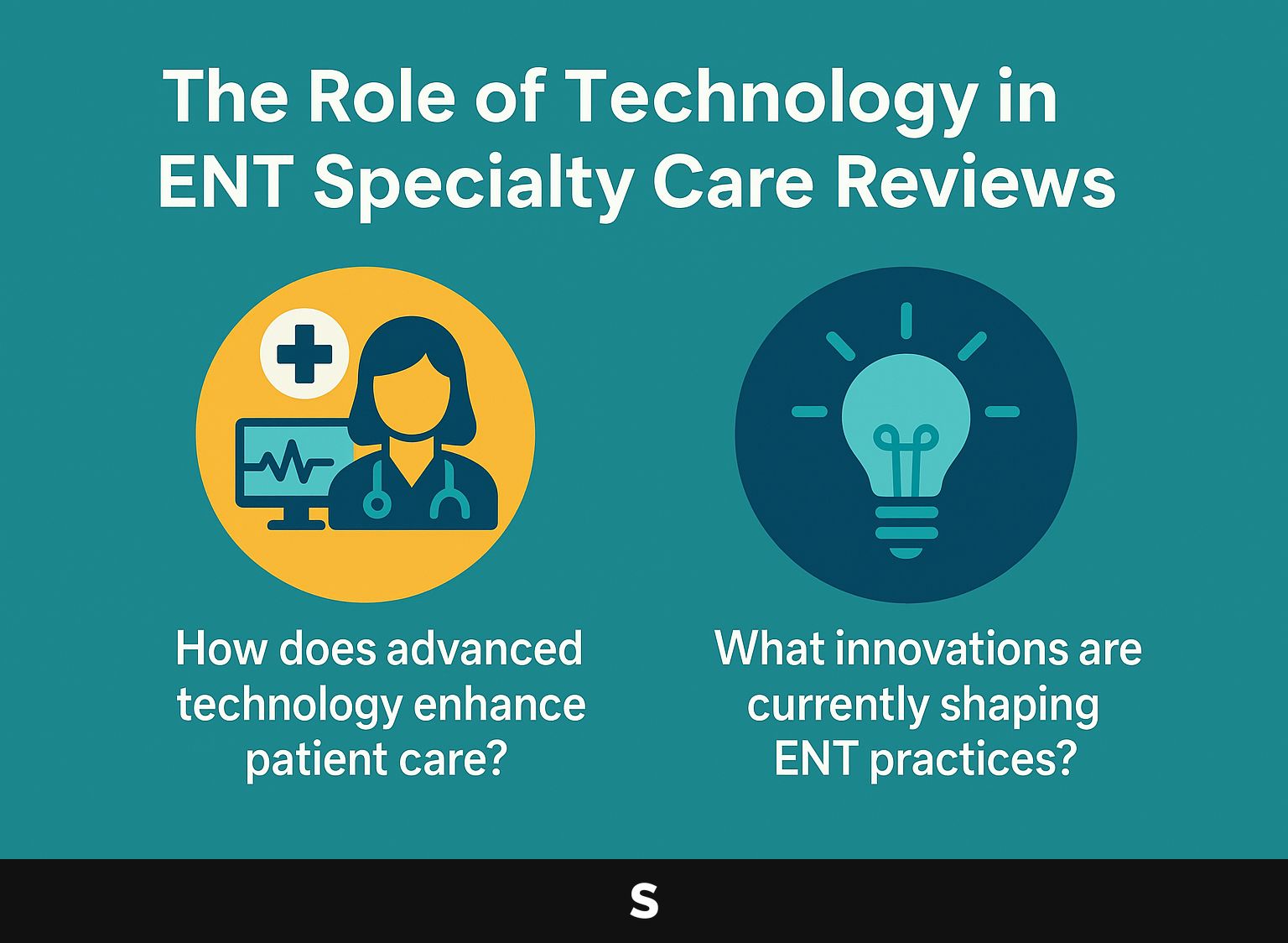
1. How does modern technology improve patient care?
New tools in ENT clinics, like digital otoscopes and real-time imaging, help doctors provide better care by making diagnoses more accurate and treatments more precise.
Digital otoscopes, for instance, enable clinicians to capture high-resolution images of the ear canal and tympanic membrane, facilitating telehealth consultations and ensuring a thorough analysis.
Real-time imaging tools, like video endoscopes, offer fast visual information during procedures, helping doctors accurately treat conditions like sinusitis.
A case study from a leading ENT clinic reported a 30% increase in patient satisfaction scores after implementing these technologies. Tools like audiology software aid in thorough hearing tests, which help in making customized treatment plans.
2. What innovations are currently shaping ENT practices?
Innovations in ENT practices, particularly in hearing technology and minimally invasive procedures, are revolutionizing patient care and setting new standards for treatment effectiveness.
Laser surgeries cause less tissue damage and allow patients to heal more quickly. Doctors use tools like the CO2 laser to perform accurate surgeries, resulting in less pain after the procedure.
AI-driven diagnostic tools such as eNose can detect respiratory conditions and ear infections earlier. These improvements make sure patients get quick treatments, which can lead to better results over time.
Clinics using these technologies operate more effectively and improve the patient experience, positioning themselves as top providers in ENT care.
Common Conditions Treated by ENT Specialists
Doctors specializing in ear, nose, and throat issues often treat conditions like hearing problems, long-lasting sinus infections, and allergies, which affect many different groups of people.
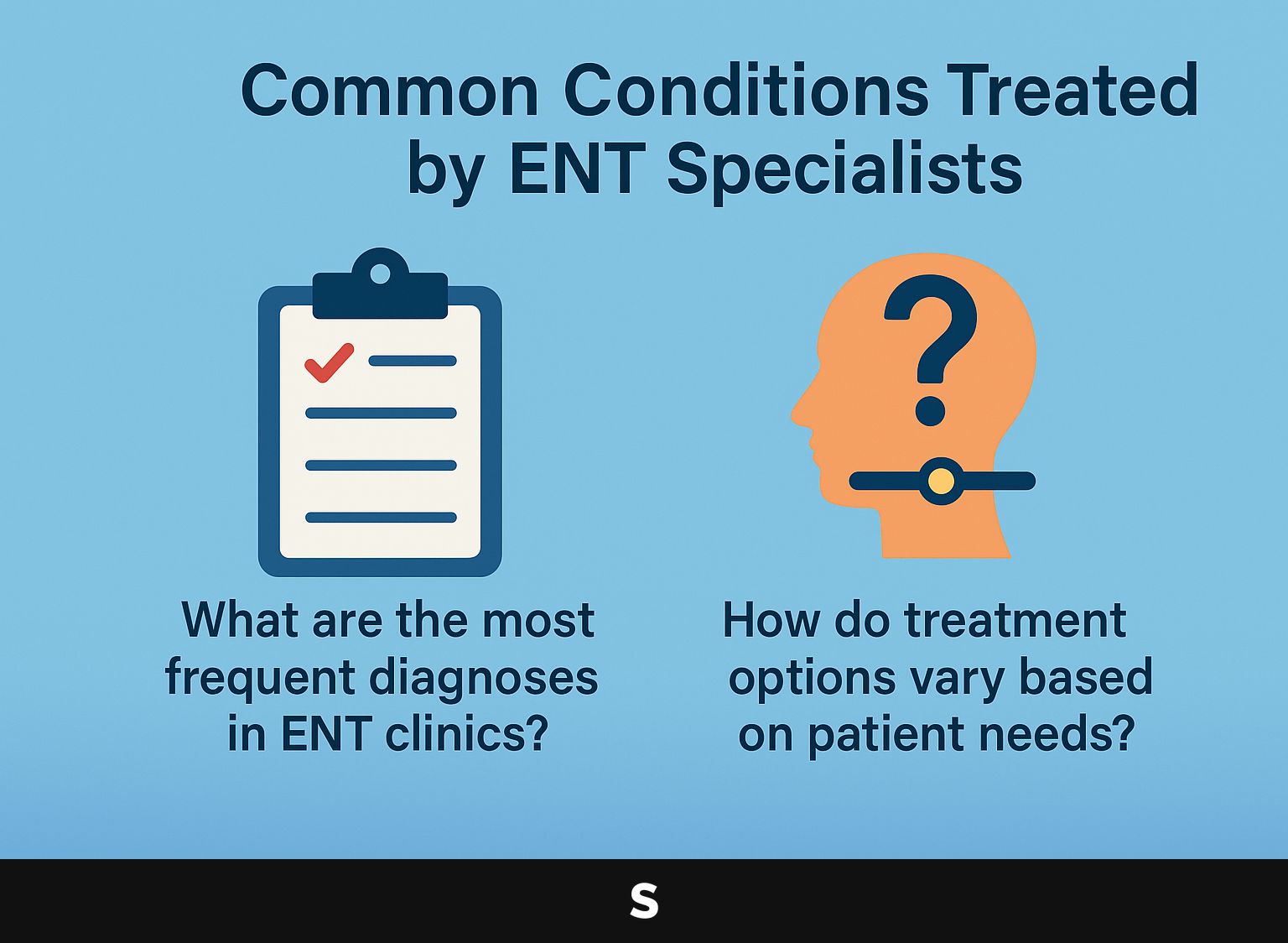
1. What are the most frequent diagnoses in ENT clinics?
Frequent diagnoses in ENT clinics include sinus infections, allergies, and voice disorders, reflecting the diverse range of conditions treated by specialists.
Sinus infections, or sinusitis, are one of the most common issues, affecting nearly 30 million Americans annually. Treatment often involves nasal sprays and, in chronic cases, antibiotics.
Allergies, another prevalent concern, can manifest as nasal congestion or sneezing, with antihistamines like loratadine providing relief. Problems with the voice, whether in talking or singing, might require therapy or adjustments in how one uses their voice.
Knowing these conditions can help patients work with their healthcare providers, allowing for informed decisions about diagnosis and effective treatment plans.
2. How do treatment options vary based on patient needs?
Treatment options in ENT clinics vary widely based on individual patient needs, ranging from medication for allergies to surgical interventions for chronic sinusitis.
For example, consider a patient suffering from seasonal allergies. An ENT doctor might suggest a specific treatment plan that includes nasal sprays like Flonase for swollen nasal passages and antihistamines such as Zyrtec to help with symptoms.
In contrast, a patient with chronic sinusitis may need surgical procedures like functional endoscopic sinus surgery (FESS) to improve drainage. Each patient’s history and lifestyle are taken into account, ensuring the chosen methods effectively address their specific issues, promoting better outcomes.
Assessing the Qualifications of ENT Specialists
Checking the qualifications of ENT specialists is important for providing good care and achieving positive results for patients, especially in difficult cases.
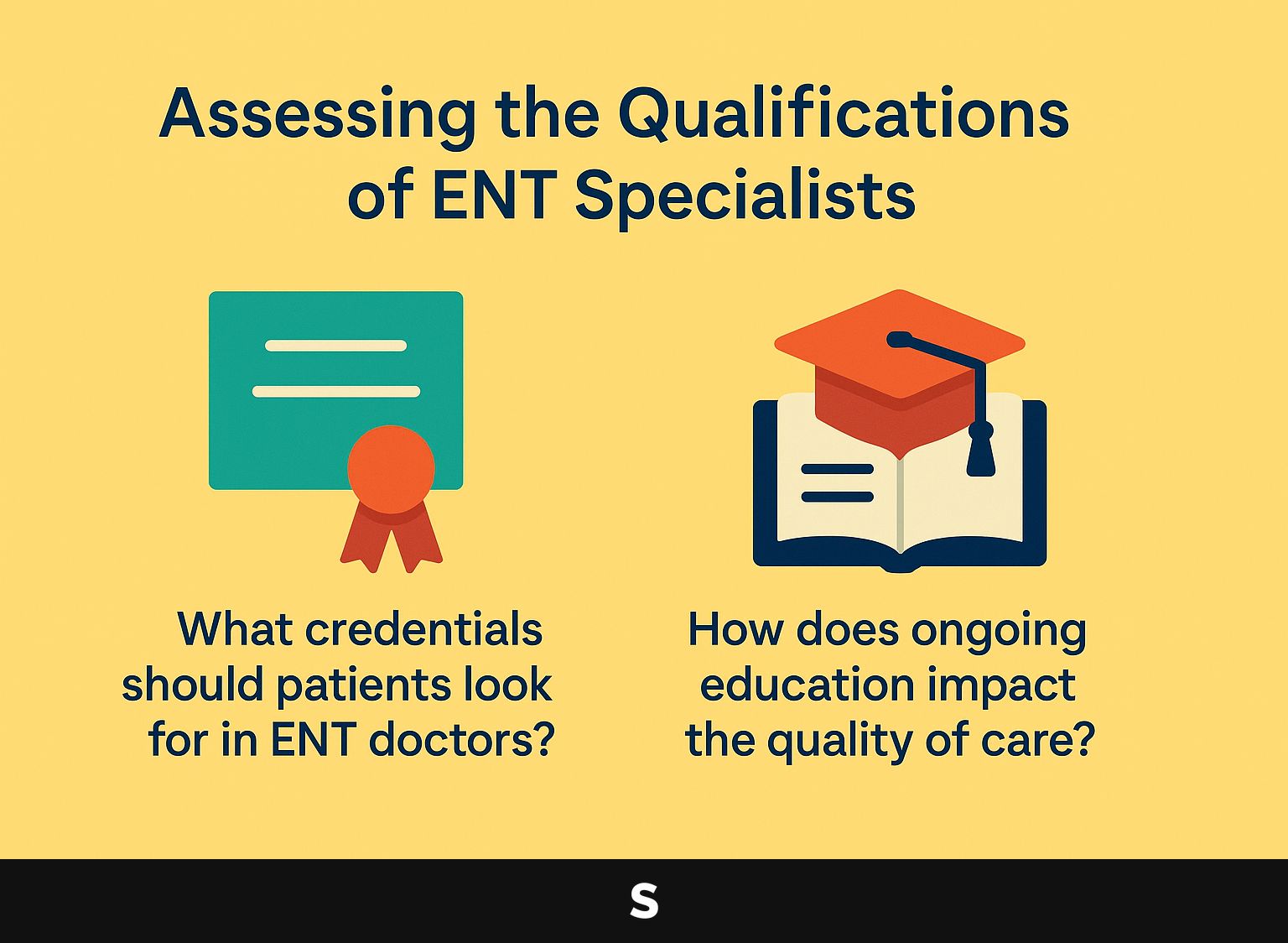
1. What credentials should patients look for in ENT doctors?
Patients should look for specific credentials in ENT doctors, such as board certification from recognized medical boards and relevant fellowship training.
Consider their experience in treating conditions pertinent to your needs, whether that be sinus issues, hearing loss, or throat disorders. An ENT specialist with a strong track record in your specific concern often leads to better outcomes.
Examine patient reviews to gauge their bedside manner and communication style. You can use websites like Healthgrades or Zocdoc to find detailed profiles and patient reviews, helping you select a doctor who fits your professional needs and personal preferences.
2. How does ongoing education impact the quality of care?
Ongoing education and training for ENT specialists are critical components that directly impact the quality of care and the ability to adopt innovative practices.
To stay updated with the latest developments, ENT specialists should attend training events such as the American Academy of Otolaryngology’s yearly meeting, which presents the newest research and methods.
Completing online courses through platforms such as Medscape or UpToDate can provide immediate access to evidence-based practices.
Meeting professionals at specialized conferences helps you share information with others in your field, so going to events like the Triological Society’s Combined Sections Meeting is important. Focusing on ongoing learning improves clinical abilities and leads to better results for patients.
Patient-Centric Care in ENT Clinics
Care in ENT clinics focuses on involving patients in treatment choices and putting their needs and wants first during their care.
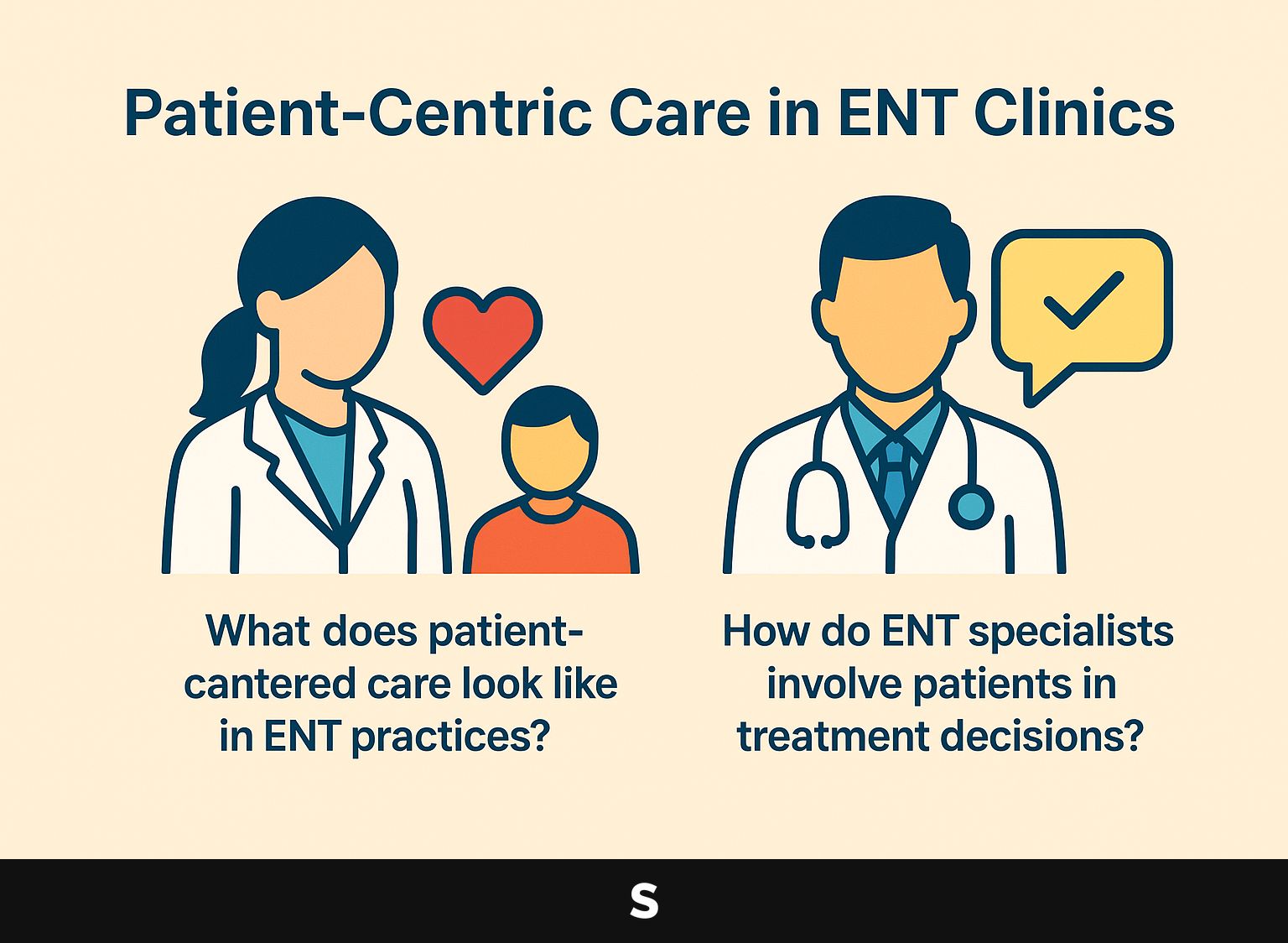
1. What does patient-centered care look like in ENT practices?
In ENT practices, patient-centered care means including patients in their treatment plans, encouraging open communication, and honoring patient choices. To make care more centered around patients, ENT clinics can involve patients in making decisions by using tools that clearly and visually present treatment options.
For example, clinics can introduce patient education handouts or digital platforms like the Patient Decision Aids website, enabling patients to understand their choices thoroughly.
Personalized treatment plans should include discussions about lifestyle factors that influence health, such as allergy triggers or sleep habits.
Regular follow-up consultations using telemedicine can also provide a platform for ongoing patient feedback, ensuring that treatment remains aligned with patient needs and preferences.
2. How do ENT specialists involve patients in treatment decisions?
ENT specialists can involve patients in treatment decisions by explaining all possible choices and welcoming questions to support mutual knowledge.
To improve patient participation, ENT specialists can use visual aids like diagrams of the ear or nasal passages to clearly show conditions and procedures. Decision aids, such as pamphlets or apps, can be helpful by giving patients specific details about the risks and benefits of each choice.
Holding meetings where patients can express their concerns and preferences helps create a team-based setting. These practices clarify options and give patients the ability to make decisions, resulting in greater satisfaction and commitment to following treatment plans.
Community Impact and Outreach of ENT Clinics
ENT clinics play a key role in teaching the community about ear, nose, and throat health. They join local projects to inform people about ENT health issues.
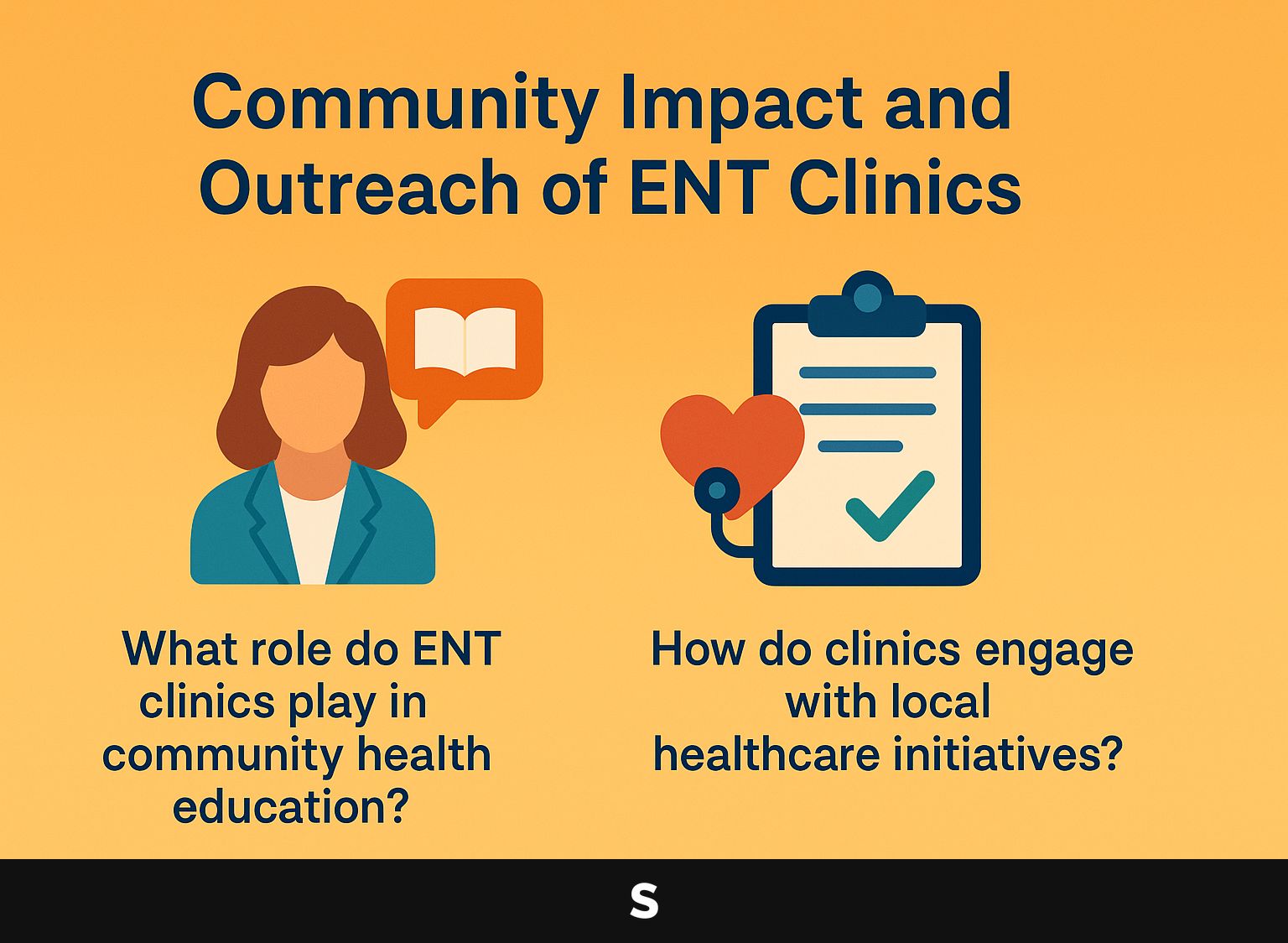
1. What role do ENT clinics play in community health education?
ENT clinics play a key role in local health education by offering materials and knowledge to help avoid and handle ear, nose, and throat conditions. To increase awareness, clinics can set up various educational programs.
Hosting community workshops focusing on conditions like allergies, hearing loss, and sinusitis can be extremely beneficial. For example, a monthly workshop could focus on `Learning About Hearing Aids,’ where patients get information about choices and the technology involved.
Informational sessions in schools can educate children about ear health, underscoring the importance of hygiene and early symptom recognition. Sharing advice and resources on social media helps spread useful information to a larger audience.
2. How do clinics engage with local healthcare initiatives?
Clinics engage with local healthcare initiatives by collaborating with schools, community centers, and health fairs to promote ENT health and accessibility to care. These partnerships raise public awareness and make it easier for people to get important health services.
For instance, hosting free screening events at schools can identify issues early, leading to improved health outcomes. Community centers often offer useful resources, like educational workshops on ear and throat health.
Collaborating with local organizations allows clinics to tap into existing networks, thus maximizing outreach efforts and creating a unified approach to health education. These actions create a helpful setting that is good for both the clinics and the community.
Frequently Asked Questions
1. What is an ENT clinic review and how does it address specialty care quality?
ENT clinic reviews are feedback and ratings left by patients after receiving treatment at an ear, nose, and throat (ENT) clinic. These reviews give information about the quality of specialized care available, including detailed procedures and services provided by the clinic.
2. Why are ENT clinic reviews important for addressing specialty care quality?
ENT clinic reviews help both patients and the clinic. They allow patients to make informed decisions about their healthcare and help the clinic to continuously improve and maintain high standards of care.
3. How can I find ENT clinic reviews that specifically address specialty care quality?
Many online platforms, such as Spokk.io, specialize in providing reviews for healthcare providers and facilities. These platforms let patients sort reviews by specialty, helping them easily locate ENT clinic reviews focused on the quality of specialty care.
4. What should I look for in ENT clinic reviews that address specialty care quality?
When reading ENT clinic reviews, pay attention to the overall ratings, comments about specific procedures and treatments, and the experiences of other patients with similar conditions. Check for patterns and consistency in the reviews to learn more about the clinic’s quality of specialized care.
5. How can ENT clinic reviews that address specialty care quality help me make a decision about my healthcare?
Reviews of ENT clinics can give useful information about the level of care provided by a specific clinic. They can help you determine if the clinic is well-equipped to handle your specific condition, and if other patients have had positive experiences with their treatments.
6. Can ENT clinic reviews that address specialty care quality help a clinic improve its services?
Absolutely. Reviews for ENT clinics offer important feedback, helping clinics find areas for improvement and deal with any patient concerns. By regularly making their services better, clinics can keep high-quality specialty care and, in the end, help their patients.
